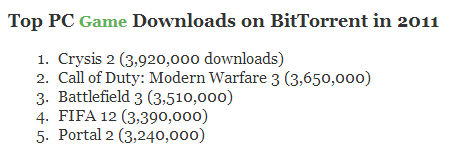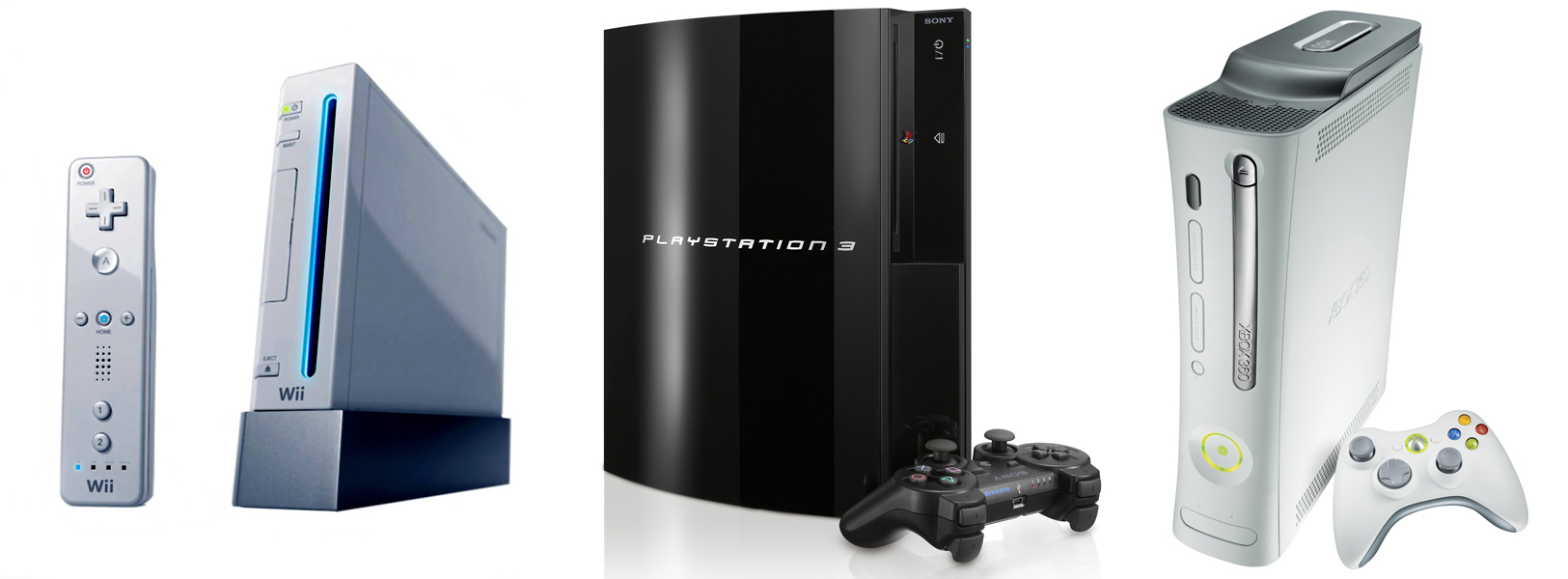Piracy has had a long-standing, terse relationship with PC games for well over a decade. On the one hand, we have the advocates who tout that pirates are all that stands between a gamer’s wallet and greedy corporations. On the other, less blatantly displayed hand, we have legitimate buyers suffering DRM measures and game developers deprived of their hard-earned money.
Piracy has always been a turbulent topic to navigate. There are too many stakeholders involved and too much misplaced hearsay about things like DRM and copy-protection. The cold, hard truth of it is, piracy is leeching the PC gaming industry in disastrous ways mostly to gamers — and we’re all too oblivious to recognize it.
Dropping the hammer…on your own foot
A brutally succinct report by Tweak Guides outlines exactly how piracy hurts gamers most. The report contains facts backed by uncomfortably solid stats and sheds light on dispelling the myths surrounding piracy. Many are eager to point out that piracy isn’t all bad. The following are some common claims made in favour of piracy, followed by the reality of the situation.
“Games cost too much!”
The first complaint many gamers will use in their defense against piracy is that PC games are overpriced. Consider the price of a console version, of maybe shelling out $40, for a game isn’t your cup of tea, but the fact of it is, PC games are generally cheaper than console versions.
An Xbox 360 copy of Metro: Last Night (released in May) will cost you a hefty $65, a PS3 version will cost $59, and a PC version costs $48. This is not an exception. Yet sales of console games are miles ahead of their PC counterparts.
Lower PC game sales have consequences. The fewer copies that sell, the lower the publisher’s profit margin is and the less likely they are to be able to offer discount deals. Since piracy effectively allows people to play a game without purchase, it is actually lowering our chances of getting a legit copy for less.
And here we hit the freeloading problem: people who contribute nothing toward the cost of developing the game. This weight is then carried by paying customers. Not seeing the problem yet?
Simply put, developing a video game isn’t cheap. According to industry analysts, GTA V is estimated to have cost around $137 million to develop. Game development costs are increasing across the board, as consumers expect more with each new release. If enough people pirate this game, Rockstar will have to rely on console sales to make a profit. There is increasingly less incentive to develop PC-exclusive titles when a developer sees little chance of breaking even.
For a real-world example, Crytek, developer of the popular Crysis series, cited piracy as its reason for switching from PC exclusives to multiplatform versions after sales of Crysis took a hard hit.
“It promotes the game!”
There is absolutely no way to tell whether the buzz created by word-of-mouth and pirated games will result in increased sales or increased piracy. In some cases, it may actually be damaging. Some companies have leaked DRM-addled copies of a game pre-release, just to ward off pirates and protect day one sales. These copies provided intentionally terrible gameplay, but the attempt backfired as devs faced a backlash of poor user reviews on Metacritic and deliberate down-rating once word of the DRM measures got out.

“I wanna try a game before I buy!”
Gamers often want to check out a game before they commit to buying it. This is a valid argument, and it’s why game demos exist. Yet again, though, there is no guarantee they will actually buy the game once they try a pirated copy. It would be illogical to play a game through and then purchase a legit version. It’s human nature: why spend money if you can get something for free?
“People Will Pay for Good Games!”
An oft-touted defense from righteous gamers is that a good game sells itself. This is untrue. The most popular pirated games every year are all big titles, known by general consensus as “good games”.

Source: Gamefront
Crysis 2 sold only 486,943 copies that year. There is no evidence that a good game will indeed “sell itself”.
“PC games sell less because more people have consoles!”
Though not a direct defense against piracy, this is used to justify why poor PC game sales can’t be blamed on piracy.
It’s hard to pin down a figure for how many gaming-capable PCs exist. Many PC aficionados buy components separately and so sales of pre-built PCs do not accurately reflect the number of gaming PCs. One way to get an idea is by looking at sales of GPUs. This year, for instance, NVIDIA reported that GPU sales revenue was at $832.5 million, an increase of 7.1% from last year. And considering even a graphic card over two years old can handle Call of Duty 4 at 30 FPS, it is a fair estimate to say that almost every graphic card sold this year has been capable of gaming to some extent.
Suffice to say, PC gaming is not in decline. According to VGChartz, between 2005-12, 6 times as many games were played on PCs than on the 3 consoles combined. This is data taken from a small sample of gamers, and to compensate for that, we can safely attest that there are at least as many PC gamers as console gamers.

“DRM causes piracy. Removing it will mean more sales.”
Spore, the most pirated game of 2008, has SecuROM protection (a DRM measure), and yet was the most downloaded game that year. DRM in a game is no deterrent to piracy.
Gamers love to hate DRM and rightfully so. It disrupts gameplay. But consider this. DRM is only a response from desperate developers to wild increases in piracy, which has reached a point where pirated copies out-do sales. Games didn’t start off with DRM. Piracy caused it.
Game devs know pirates will get around security measures. Since most games usually sell well only within the first 2 months, DRM aims to prevent Day 0 or Day 1 piracy. It is not meant to eradicate piracy.
And what happens when well-intentioned developers remove DRM altogether? When The Witcher 2 launched, it was exactly what gamers wanted, a well-made PC exclusive free of DRM. Instead of selling well, CD Projekt found that more than 80% of its players used a pirated copy.
Steam’s DRM is one of the few successful combatants of piracy. The client still rakes in huge revenue, and probably a large reason why devs haven’t given up hope altogether.
“Sure, PC gaming is dead, that totally explains the number of games.”
This claim implies that piracy must not be hurting PC gaming if devs are still creating PC versions of a game. The fact of it is, PC gaming was never dead. But piracy is having an incredible impact.
The Move to Consoles

Development and support for PC titles are being cut and devs are being pushed into doing one of two things: shifting to consoles or changing their business models to episodic or subscription-based gaming.
For the skeptics, several prolific developers have called out pirates as being the reason for their shifting strategies. Cevat Yerli of Crytek explains:
“Speaking in terms of PC exclusivity…if the situation continues like this or gets worse, I think we would only consider PC exclusive titles that are either online or multiplayer and no more single-player.”
John Carmack of id Software (developer of Wolfenstein) , Cliffy B of Epic Games (Gears of Wars developer) and Robert Bowling of Infinity Ward (Call of Duty developer) have all spoken out about the impact of piracy on their companies. In a blog post titled, “They Wonder Why People Don’t Make PC Games Any More”, Bowling writes:
“If the same game has the potential to sell many times more copies on a particular platform because sales are not being undermined by piracy, then quite clearly the priority of the developers and publishers should be to focus on that platform in their design, development and marketing decisions. “
Less PC Exclusives, More Console-First.
Fewer PC-focused games mean poor ports for multiplatform titles or those built for consoles.
This is problematic, because consoles run on a fixed hardware platform whereas a PC has multigenerational hardware capability. Ported games may thus have fewer graphics and audio adjustments, have frame rate caps built into the game engine, are poorly optimized and suffer graphical compromises mandatory to run on a current-gen console. Other problems include console-oriented UI, resulting in awkwardly large HUDs for PC games like Skyrim. Adding to this, game engines like Unreal Engine 4 are being designed to “exclusively target the next console generation.” PCs are an afterthought.
PC Game Versions Delayed.
Developers are wizening up. They see the lack of piracy in console games and are pushing back release dates for PC versions. Michael Plater, the creative director of Tom Clancy’s EndWar, blamed the game’s delayed PC launch on piracy.
“The level of piracy that you get with the PC just cannibalizes the others, because people just steal that version,” he said. “Piracy’s basically killing PC.”
Even post-E3 2013, devs remain elusive about porting this year’s big titles to PC.
A Bleak Future for PC Gaming.
Piracy isn’t visibly disrupting anything, and yet if gamers don’t act, PC gaming could go the same way as gaming on Macs – near nonexistent. Peter Tamte, a Mac game developer, imparted these cautionary words to all PC publishers, and they appear to be listening:
“Shift development to platforms where piracy is less of a problem, like game consoles.”
TLDR: The only winners of the piracy game are the piracy sites that rake in subscription fees and DRM developers. PC gamers and game developers alike are losing.







Published: Jun 19, 2013 09:17 pm